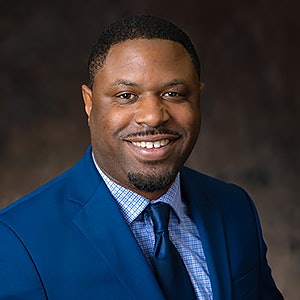In our quest for a more equitable and inclusive world, we often discuss diversity and equality. These are indeed crucial elements of the equation. But we must not overlook the equally vital aspects of accessibility and belonging. These twin pillars are indispensable in the pursuit of true diversity, equity, and inclusion (DEI). According to disability studies scholar, Dr. Antonio L. Ellis, “accessibility means dismantling the barriers—physical, digital, and attitudinal—that impede the full participation of individuals with disabilities.” It signifies the removal of hurdles that prevent people from accessing spaces, opportunities, and information on an equal footing. Leon Burns III
Leon Burns III
To underscore the importance of accessibility, consider this: The United Nations Convention on the Rights of Persons with Disabilities recognizes accessibility as a human right. It reaffirms the principle that all individuals, regardless of their abilities, have the right to participate fully in society. This extends to education, employment, public services, and beyond. When we advocate for accessibility, we create a world where physical environments are inclusive, technology is user-friendly, and attitudes are free from prejudice. We send a message that everyone deserves equitable opportunities, irrespective of their physical or cognitive abilities.
Belonging is the deeper, more profound layer of DEI. It goes beyond merely granting access; it invites individuals to feel valued, accepted, and embraced for who they are. According to higher education scholar, Dr. Terrell L. Strayhorn, “the absence of a sense of belonging typically is described as ‘a sense of alienation’, rejection, social isolation, loneliness, or marginality, which has been linked to negative proximal and long-term outcomes such as dissatisfaction, low self-esteem, depression, substance abuse, and suicide”. Belonging is the key to unlocking the true potential of diversity. Inclusive spaces foster a sense of belonging, where individuals are encouraged to bring their authentic selves to the table. It's about recognizing and celebrating the rich tapestry of human experiences, backgrounds, and perspectives. Belonging means that people don't just have a seat at the table; they have a voice that is heard and respected.
Belonging is particularly essential in educational and workplace settings. A sense of belonging has been shown to boost motivation, engagement, and overall well-being. When individuals feel like they belong, they are more likely to thrive and contribute fully to their communities and organizations. Accessibility and belonging are not separate entities. They intersect and reinforce each other. When we prioritize accessibility, we create the conditions for belonging to flourish. When individuals have equal access to opportunities, they are more likely to feel a sense of belonging and inclusion. Dr. Antonio Ellis
Dr. Antonio Ellis
For example, in an accessible workplace, an employee with a disability can fully engage in team meetings, access training materials, and participate in professional development opportunities. This equal access fosters a sense of belonging, as the employee is empowered to contribute their skills and ideas without feeling marginalized or excluded. Making accessibility and belonging integral to DEI requires collective action. Higher education institutions, governments, organizations, and individuals must embrace these principles as fundamental rights and values. This includes investing in accessible infrastructure, technology, and policies, as well as creating inclusive cultures where belonging is celebrated.
In conclusion, we contend that accessibility and belonging are not mere add-ons to the DEI conversation; they are central to its success. To create a world where diversity is celebrated, equality is a given, and inclusion is a reality, we must champion accessibility and belonging as essential components of our journey toward a more equitable and inclusive society. When we do, we unlock the true potential of DEI, creating a brighter and more inclusive future for all.
Leon Burns is President and CEO of Open Technology Group.
Dr. Antonio L. Ellis is a senior professorial lecturer in the educational policy and leadership doctoral program and special education program at American University School of Education. He is also the director of the Institute on Education Equity and Justice.





















